-
 UV11W High-efficiency Intelligent UV Water Sterilizer Cat:Ultraviolet Water Sterilizer
UV11W High-efficiency Intelligent UV Water Sterilizer Cat:Ultraviolet Water SterilizerThe UV11W High-efficiency Intelligent UV Water Sterilizer is an advanced water purification system that offers convenience and reliability. This steri...
See Details -
 UV16W-A Household Stainless Steel UV Water Sterilizer Cat:Ultraviolet Water Sterilizer
UV16W-A Household Stainless Steel UV Water Sterilizer Cat:Ultraviolet Water SterilizerThe UV16W-A Household Stainless Steel UV Water Sterilizer is an innovative solution for ensuring safe and pure water in your home. Designed with durab...
See Details -
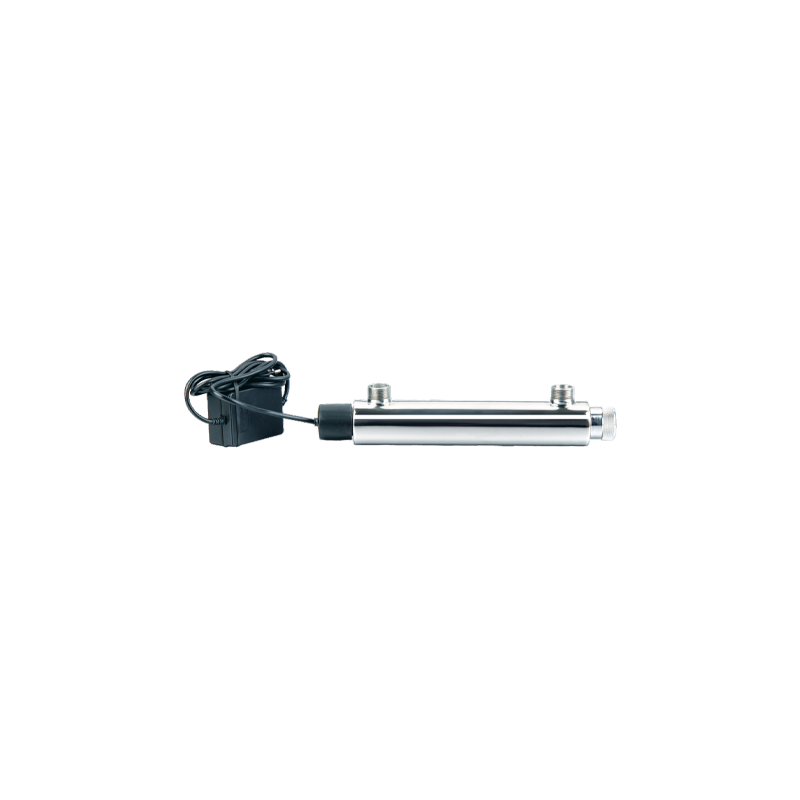 UV16W-B 304 Stainless Steel Water Purifier Ultraviolet Water Sterilizer Cat:Ultraviolet Water Sterilizer
UV16W-B 304 Stainless Steel Water Purifier Ultraviolet Water Sterilizer Cat:Ultraviolet Water SterilizerUV16W-B 304 Stainless Steel Water Purifier Ultraviolet Water Sterilizer is an efficient water treatment equipment based on advanced ultraviolet disinf...
See Details -
 UV25W Stainless Steel Ultrafiltration Pre-Filtration UV Sterilizers For Water Cat:Ultraviolet Water Sterilizer
UV25W Stainless Steel Ultrafiltration Pre-Filtration UV Sterilizers For Water Cat:Ultraviolet Water SterilizerUV25W Stainless Steel Ultrafiltration Pre-Filtration UV Sterilizers For Water uses high-quality stainless steel materials, which have superb corrosion...
See Details -
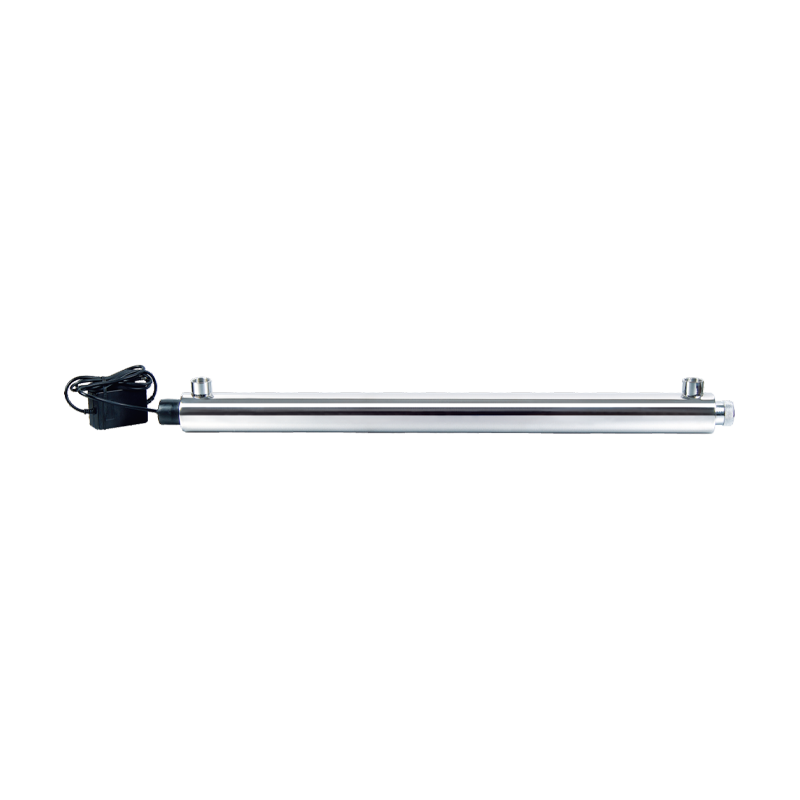 UV30W-55W Automatic Ultraviolet Sterilizer UV Filtration For Drinking Water Cat:Ultraviolet Water Sterilizer
UV30W-55W Automatic Ultraviolet Sterilizer UV Filtration For Drinking Water Cat:Ultraviolet Water SterilizerThe core advantage of UV30W-55W Automatic Ultraviolet Sterilizer UV Filtration For Drinking Water lies in its efficient and rapid disinfection capabil...
See Details -
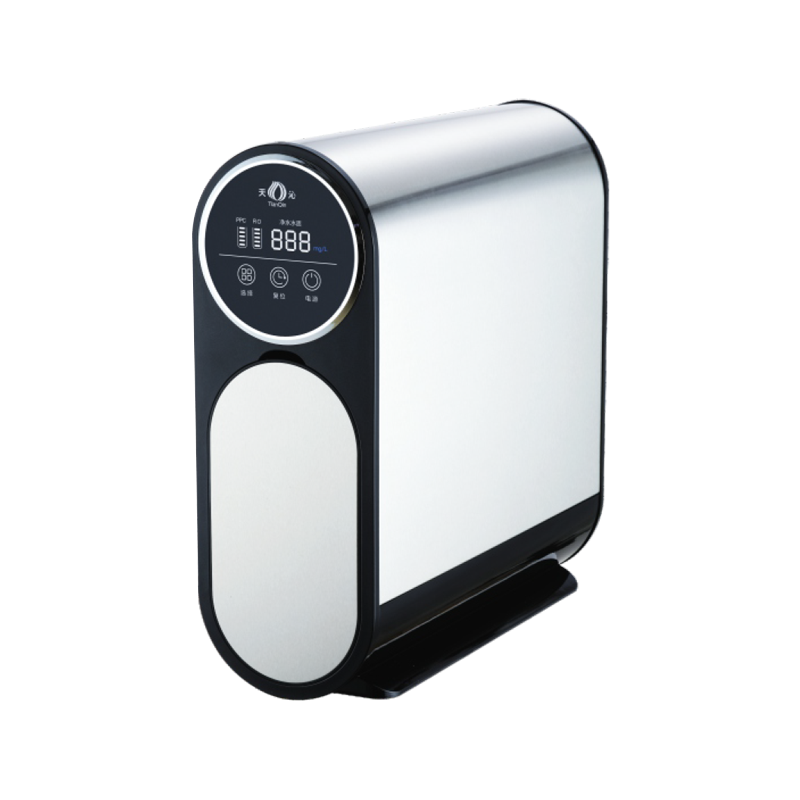 TQ-R03 Stainless Steel Booster Double Water Full Effect RO Water Purifier Cat:Stainless Steel Ro System
TQ-R03 Stainless Steel Booster Double Water Full Effect RO Water Purifier Cat:Stainless Steel Ro SystemTQ-R03 Stainless Steel Booster Double Water Full Effect RO Water Purifier is a household water purification device that combines efficient water purif...
See Details -
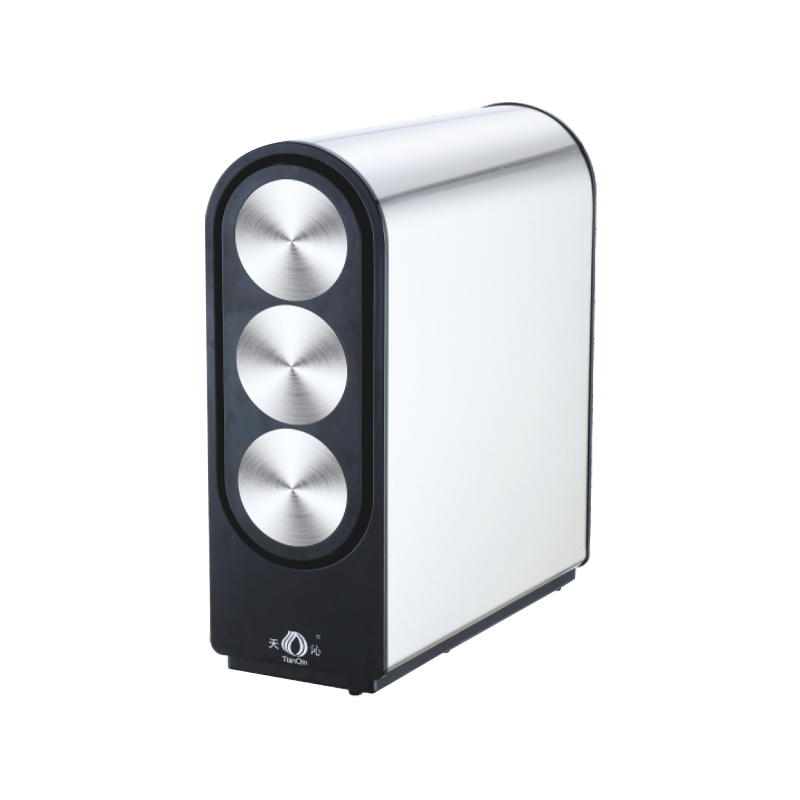 TQ-R05 Multifunctional Water Purification Source RO Water Purifier Cat:Stainless Steel Ro System
TQ-R05 Multifunctional Water Purification Source RO Water Purifier Cat:Stainless Steel Ro SystemThe TQ-R05 Multifunctional Water Purification Source RO Water Purifier is an advanced, versatile water purification solution designed for households a...
See Details -
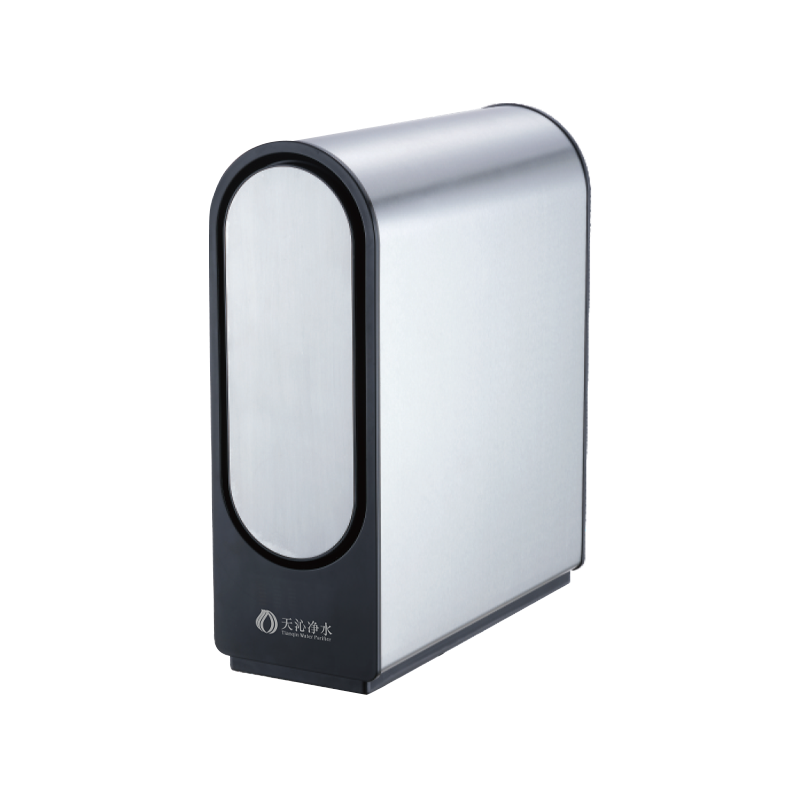 TQ-R06 Stainless Steel Environmentally Friendly RO Water Purifier Cat:Stainless Steel Ro System
TQ-R06 Stainless Steel Environmentally Friendly RO Water Purifier Cat:Stainless Steel Ro SystemThe TQ-R06 Stainless Steel Environmentally Friendly RO Water Purifier combines advanced RO filtration technology, durable stainless steel housing, and...
See Details -
 Stainless Steel Pure Double Water Pipe Water Purifier Cat:Stainless Steel Pipeline Water Purifier
Stainless Steel Pure Double Water Pipe Water Purifier Cat:Stainless Steel Pipeline Water PurifierThe Stainless Steel Pure Double Water Pipe Water Purifier is an advanced water purification system designed to provide dual-mode purified water with e...
See Details -
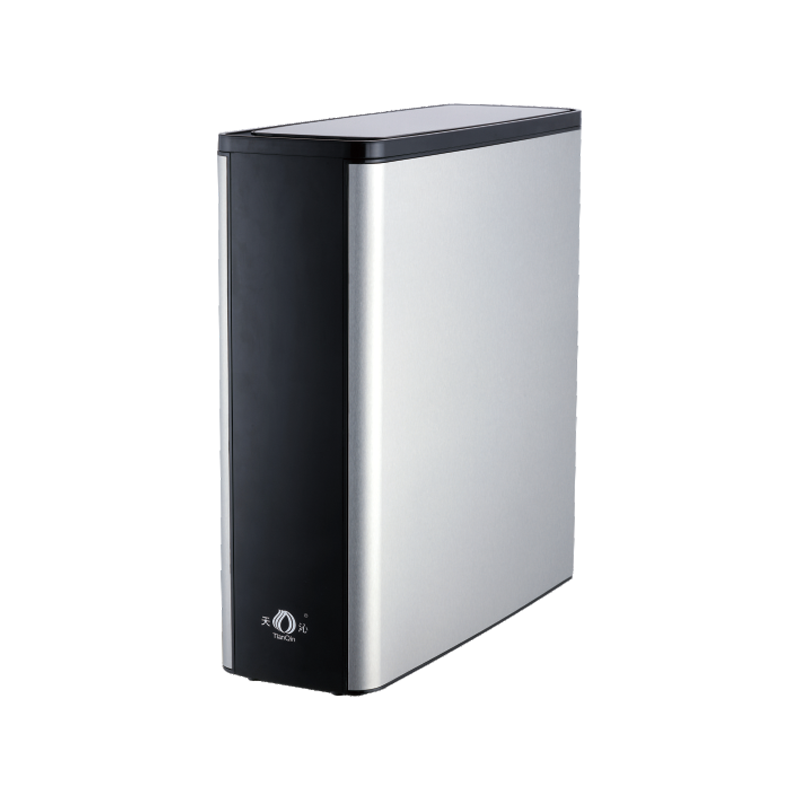 TQ-R08 Stainless Steel High-Flow RO Water Filter Cat:Stainless Steel Ro System
TQ-R08 Stainless Steel High-Flow RO Water Filter Cat:Stainless Steel Ro SystemThe Stainless Steel High-Flow RO Water Filter (TQ-R08) provides a powerful and effective solution for purifying drinking water, combining advanced rev...
See Details
Drink Water Filters in the Office: Why Clean Drinking Water Is Essential for Employee Health
In today’s fast-paced office environment, companies are increasingly focusing on improving employee well-being and boosting productivity. One often overlooked but essential aspect of workplace health is access to clean, safe drinking water. Ensuring that employees have access to fresh, filtered water not only supports hydration but can also have a significant impact on their overall health, comfort, and productivity. As more businesses recognize the importance of this, drink water filters are becoming a key feature in office spaces.
Content
The Importance of Hydration in the Workplace
Hydration plays a crucial role in maintaining optimal physical and cognitive function. The human body is composed of approximately 60% water, and maintaining a proper fluid balance is vital for processes like temperature regulation, digestion, and nutrient absorption. Dehydration, even in mild forms, can impair focus, reduce energy levels, and negatively affect mood, which can directly impact an employee's performance.
In a typical office setting, employees are often busy with long hours at their desks, meetings, and deadlines, making it easy for them to overlook their hydration needs. Without easy access to clean drinking water, employees may neglect to drink enough water throughout the day, leading to dehydration. This can contribute to feelings of fatigue, headaches, and a lack of concentration, all of which can detract from productivity and overall job satisfaction.
Having clean, filtered water readily available in the workplace encourages employees to stay hydrated. It’s simple, yet effective—by providing clean water, employers can create an environment where employees are more likely to make hydration a priority.
Why Clean Drinking Water Matters
While drinking water is essential, the quality of the water consumed is just as important. Tap water can often contain impurities such as chlorine, lead, pesticides, bacteria, and other contaminants that can negatively affect health. These contaminants can contribute to short-term issues like stomach discomfort or long-term health risks such as cardiovascular disease, kidney damage, and even cancer.
For offices, where employees spend a significant portion of their day, having access to high-quality drinking water is not only a matter of comfort but also of health. A drink water filter can help ensure that employees are consuming water free of harmful substances, providing peace of mind and promoting better overall health.
Health Benefits of Drink Water Filters in the Office
Improved Hydration
Filtered water is free from impurities that can affect taste and odor, making it more appealing for employees to drink. When water tastes better, employees are more likely to drink it more frequently, leading to improved hydration. This helps prevent dehydration-related symptoms like fatigue, headaches, and lack of focus.
Enhanced Productivity and Mental Clarity
Dehydration is known to impair cognitive function, leading to poor concentration, slower reaction times, and increased errors. By providing employees with access to clean drinking water, employers can help maintain optimal brain function. When workers are hydrated, they are more focused, energized, and mentally sharp, which can improve both the quality and efficiency of their work.
Reduced Absenteeism and Health Issues
Drinking clean, filtered water can help reduce the risk of waterborne illnesses, which could otherwise result in sick days. Contaminants like bacteria, heavy metals, and chlorine in unfiltered tap water may contribute to gastrointestinal problems and other health concerns. Offering filtered water reduces the chances of employees getting sick, ultimately decreasing absenteeism and improving the overall health of the workforce.
Long-Term Health Benefits
Prolonged exposure to contaminants like heavy metals (e.g., lead), pesticides, and chlorine has been linked to chronic health issues such as high blood pressure, cancer, and developmental delays. By providing filtered water, companies take a proactive step in ensuring their employees' long-term health, potentially reducing future healthcare costs and promoting a culture of well-being.
Supports Weight Management and Healthy Habits
Drinking water can also support weight management, as it promotes satiety and helps with digestion. Clean, accessible drinking water in the office encourages healthier habits, such as drinking water over sugary sodas or caffeinated beverages, which can contribute to weight gain and other health issues like hypertension and diabetes.
Cost-Effectiveness of Drink Water Filters
While the initial investment in a high-quality drink water filter system for the office may seem significant, the long-term benefits far outweigh the costs. Clean water systems are a one-time investment that can provide employees with an endless supply of fresh, purified water, without the ongoing expense of bottled water.
Moreover, businesses may find that offering filtered water in the office can lead to reduced absenteeism and fewer healthcare claims, as employees are less likely to suffer from illnesses related to poor water quality. Healthy, hydrated employees are also more likely to stay energized and productive, resulting in higher performance levels and, ultimately, better business outcomes.
Another important financial benefit is the reduction of waste associated with bottled water. By eliminating the need for single-use plastic bottles, companies can contribute to sustainability efforts and reduce costs related to purchasing and disposing of bottled water.
Types of Drink Water Filters for the Office
When choosing a water filtration system for the office, there are several options available depending on the size of the workplace, the type of water source, and specific employee needs. Here are some popular options:
Point-of-Use (POU) Filters
POU filters are installed directly at the water source, typically at a faucet or water cooler. They provide purified water on demand and are ideal for smaller offices or for locations where employees prefer individual access to filtered water. These systems are convenient and relatively low-maintenance, making them a popular choice for businesses of all sizes.
Reverse Osmosis (RO) Systems
Reverse osmosis is a highly effective filtration method that removes a wide range of contaminants, including heavy metals, bacteria, and viruses. RO systems are ideal for offices with concerns about water quality or those in areas with particularly contaminated water. While RO systems may require regular maintenance and filter replacement, they offer high-quality, purified water.
Water Coolers with Built-in Filtration
Many office water coolers now come with integrated filtration systems, combining the convenience of a traditional water cooler with the benefits of filtered water. These units are perfect for larger office spaces or areas with multiple employees, offering both hot and cold filtered water in one unit.
Under-Sink Filtration Systems
For offices with limited space, under-sink filtration systems are a discreet and efficient way to filter drinking water. These systems are installed directly under the sink and provide purified water through the faucet. They are ideal for small offices or spaces where countertop water coolers or dispensers are not feasible.
Environmental Benefits
In addition to the health and financial advantages, installing a drink water filter system in the office also has significant environmental benefits. One of the primary concerns with bottled water is the impact of plastic waste. Single-use plastic bottles contribute to landfills, pollution, and environmental degradation. By switching to filtered water, companies can drastically reduce their environmental footprint, making a positive contribution to sustainability efforts.
Additionally, many water filtration systems are designed with reusable components, reducing the need for constant replacements and minimizing waste. This makes them a more eco-friendly option compared to traditional bottled water.



 English
English 中文简体
中文简体




